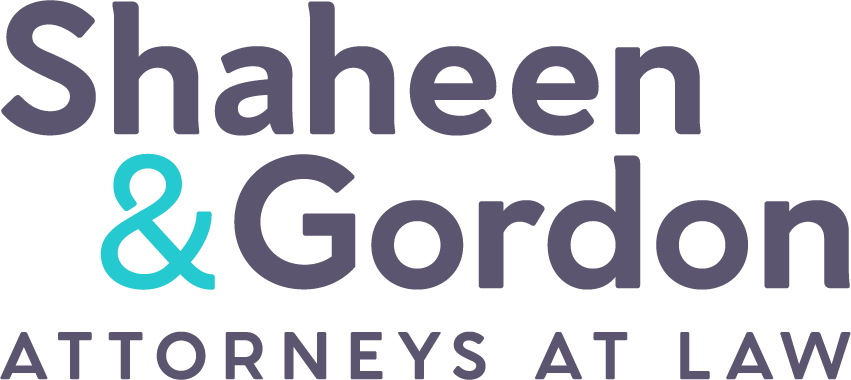If you or a loved one has been injured due to receiving a vaccine, Shaheen & Gordon, P.A. is here to fight for the justice you deserve. Contact us to schedule an appointment with a New Hampshire personal injury lawyer. Initial consultations are completely free and confidential.
New Hampshire Vaccine Injury Attorney
How Do I File a Claim With the Vaccine Compensation Program?
The Vaccine Compensation Program is different than a traditional lawsuit. In fact, no lawsuit is ever filed. Instead, individuals file a petition for compensation. This petition must be filed with the Court of Federal Claims in Washington, D.C- it cannot be filed with any other state or federal court in the country. Also, attorneys must be specifically admitted to this court in order to file petitions and practice within this program. Shaheen & Gordon attorneys are admitted to practice before the U.S. Court of Federal Claims.
Within the U.S. Court of Federal Claims is what is commonly referred to as “Vaccine Court.” Within the Vaccine Court, there are no traditional judges. Instead, after a petition for compensation is filed, a Special Master gets assigned to the case. These Special Masters only preside over vaccine injury claims. Like a judge, however, the Special Master does issue certain decisions and orders that may decide the outcome of the claim, just like in a traditional lawsuit.
In vaccine cases, it is the federal government, through the Department of Health and Human Services who serves as the defendant. They are represented by federal attorneys from the Department of Justice (DOJ). The Vaccine Injury Compensation Trust Fund is a federal fund that funds the Compensation Program. These funds come from a $.75 tax per vaccine dose, by disease. For example, each dose of the measles-mumps-rubella vaccine is taxed at $2.25 because it prevents three different diseases.
What happens after a petition is filed? Is there litigation in Vaccine Court?
Once a petition is filed, the defense attorneys, which again is the DOJ, will decide whether to challenge the claim or admit that the vaccine was the cause of the injury.
If the defense concedes that the vaccine at issue was the cause of your injuries claimed, the claim proceeds to the final phase – damages. However, if causation is challenged by the DOJ, the case will proceed to what is referred to as an “entitlement hearing.” During this hearing, both sides present evidence, including expert testimony, and the Special Master ultimately makes a ruling. These hearings are often held in Washington, D.C.
If the Special Master rules against the petitioner and finds there is no causation, that decision may then be appealed through the normal U.S. federal court system. When compensation is awarded, the award will include an amount for attorney fees and other costs.
How much will we have to pay an attorney to pursue compensation in Vaccine Court?
You pay nothing. You will not have to pay our firm any attorney’s fees. Unlike a traditional personal injury lawsuit, where the attorney’s fees may be a certain percentage of the recovery, in the Vaccine Court it is the Compensation Program which pays for attorneys’ costs and fees separately from any compensation award. In addition, we cover the out of pocket expenses of litigating the case such as expert witness fees, travel expenses, etc. This means that – win or lose – you pay nothing to be represented by an experienced vaccine injury lawyer.
How much compensation can we get from Vaccine Court?
The remedies and compensation available from the Vaccine Court are generally similar to those in a traditional lawsuit. For example, the Vaccine Compensation Program will pay economic damages sustained such as past and future medical expenses, and past and future loss of earning capacity.
General damages – such as pain and suffering – are subject to a cap of $250,000. There is otherwise no limit on the amount of compensation that may be awarded.
Is there a statute of limitations in Vaccine Court?
Yes. Claims must be filed within 3 years of the “first onset of symptoms.” In wrongful death cases, note that claims may be filed within 2 years from the date of death.
Below is a list of Vaccines that are covered by the National Vaccine Injury Compensation Program:
- Seasonal influenza vaccines (“Flu Shot”)
- Measles, Mumps, and Rubella vaccines (MMR, MR, M, R)
- Rotavirus vaccines (RV)
- Polio vaccines (OPV, IPV)
- Meningococcal vaccines (MCV4, MPSV4)
- Hepatitis A vaccines (HAV)
- Hepatitis B vaccines (HBV)
- Varicella vaccines (“Chicken Pox”) (VZV)
- Pertussis vaccines (“Whooping Cough”) (DTP, DTaP, P, DTP-Hib, Tdap)
- Diptheria and Tetanus vaccines (DTaP, DTP, DT, Td, TT, Tdap)
- Human Papillomavirus vaccines (HPV)
- Haemophilus Influenza Type B Polysaccharide Conjugate vaccines (Hib)
- Pneumococcal Conjugate vaccines (PCV)
Some of the more common injuries suffered as a result of vaccines include:
- Chronic Regional Pain Syndrome (CRPS) or Reflex Sympathetic Dystrophy (RSD)
- Shoulder Injuries (SIRVA)
- Rotator Cuff Injuries
- Bursitis
- Tendonitis
- Adhesive Capsulitis
- Frozen Shoulder
- Brachial Neuritis
- Guillain Barre Syndrome (GBS)
- Chronic Inflammatory Demyelinating Polyneuropathy (CIDP)
- Neuromyelitis Optica (NMO)
- Thrombocytopenic Purpura
- Anaphylactic Shock/Anaphylaxis
- Transverse Myelitis
- Immune Thrombocytopenic Purpura (ITP)
- Death
- Seizures
- Encephalopathy
- Acute disseminated encephalomyelitis (ADEM)
- Rash
- Paralysis
- Surgery
- Hospitalization
- Intussusception























